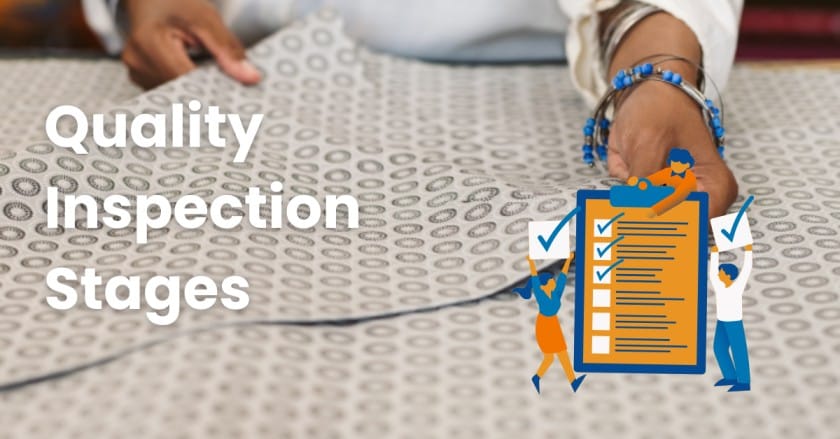From textiles to handicrafts, India is a global sourcing hub. Yet with opportunity comes risk. Effective quality inspections are essential for importers sourcing from India.
Inspection Process Stages
Pre-Production Inspection (PPI)
Pre-Production Inspections verify that raw materials, components, and production processes are compliant before manufacturing begins. This stage helps eliminate systemic defects and ensures the factory is ready to meet your standards.
During Production Inspection
This inspection is conducted when 20–50% of production is complete. Inspectors assess in-progress goods to identify deviations early, enabling timely corrective action and reducing the risk of full-batch rejection.
Final Random Inspection (FRI)
Conducted when at least 80% of production is finished, the Final Random Inspection evaluates product quality, packaging, and compliance with order specifications before shipment.
Container Loading Supervision (CLS)
CLS ensures goods are packed and loaded correctly. Inspectors verify quantity, packaging integrity, shipping marks, and compliance with documentation before container sealing.
Defect Classification and AQL
Acceptable Quality Level (AQL) is a statistical method that categorizes defects to support batch acceptance decisions:
- Critical defects: Unsafe or regulatory non-compliance; 0% tolerance.
- Major defects: Affect usability or salability; ≤ 2.5% acceptable.
- Minor defects: Cosmetic or minimal impact; ≤ 4% acceptable.
Using AQL frameworks helps ensure transparency and consistency in quality decisions.
Golden Sample Process
The Golden Sample is a pre-approved reference unit that serves as a quality benchmark throughout production and inspection. It is:
- Jointly reviewed and approved with the supplier.
- Documented with photos, dimensions, and specifications.
- Stored by both the inspector and the manufacturer for consistency.
It eliminates ambiguity during inspection and ensures alignment between buyer and factory expectations.
Engaging Third-Party Inspection Agencies
Partnering with independent inspection agencies strengthens quality control and reduces risk. Leading agencies in India include:
- Panoramic Sourcing – More than 25 Years Experience with strong presence in India.
- Bureau Veritas – Offers product inspection and factory audits.
- TÜV SÜD – Specializes in technical and lab testing.
- Intertek – Focuses on consumer goods quality and compliance.
- QIMA – Agile, textile-focused inspections and audits.
- SGS – Global leader with strong presence in India.
These agencies provide detailed reports and impartial insights to help importers make informed decisions.
Common Industries Exporting from India
India exports a broad spectrum of goods. Key sectors include:
- Textiles: Fabrics, garments, home furnishings.
- Handicrafts: Decorative items, jewelry.
- Leather: Accessories, finished leather.
- Fashion Accessories: Scarves, belts, costume jewelry.
Each sector requires tailored inspection criteria to ensure compliance and quality.
Conclusion
India’s sourcing ecosystem is rich with opportunity. With a robust inspection strategy, importers can ensure consistent quality and confidently grow their global supply chains.

Written by Ajit Jha
Panoramic Sourcing
Ajit Jha is the co-founder of Panoramic Sourcing and leads the Quality Department. With over 25 years of experience, he has worked with a wide range of international buyers to ensure product quality, compliance, and smooth sourcing from India. Ajit is known for his hands-on approach and sharp eye for detail.

